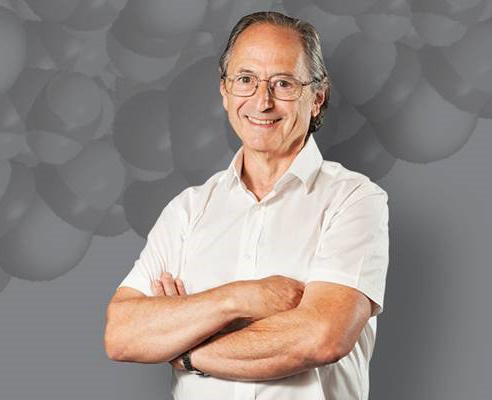Latest News Archive
Please select Category, Year, and then Month to display items
25 March 2024
|
Story Anthony Mthembu
|
Photo Lutendo Mabata
 Prof Nompumelelo Zondi, the newly appointed Vice-Dean: Research and Postgraduate Studies in the Faculty of The Humanities at the University of the Free State (UFS).
Prof Nompumelelo Zondi, the newly appointed Vice-Dean: Research and Postgraduate Studies in the Faculty of The Humanities at the University of the Free State (UFS).
Prof Nompumelelo Zondi has been appointed as Vice-Dean: Research and Postgraduate Studies in the Faculty of The Humanities at the University of the Free State (UFS). Prof Zondi assumed this new role on 1 March 2024 after serving as the Head of Department for African Languages at the University of Pretoria for seven years. “I consider this appointment as an opportunity of growth and learning more about higher education and the Faculty of The Humanities at large,” she said.
Prof Zondi indicates that part of her role is to spearhead the UFS Vision130 within the Faculty of The Humanities, and to ensure that the faculty assists the institution in becoming research-led, student-centred, and globally impactful.
Motivation for assuming this role
One of the primary reasons that led her to consider this role is sharing the knowledge she acquired as part of the Fulbright South African Research Scholar Programme. As a result of that experience and exposure, which went beyond the Ohio State University, she felt it befitting to implement some of the insights she acquired on a bigger scale. Therefore, even though she was impactful in her previous role, Prof Zondi believes that this is an exceptional and more desirable platform to do so. “I feel that I will have easier access to departments within the faculty, while also encouraging and supporting interdepartmental and faculty collaborations,” she explained.
A significant component of Vision 130
He believes that the elements that make up Vision 130 are interrelated. While she considers research central to Vision 130 – as she begins her journey at the UFS, she feels students deserve to be nurtured to further contribute to the university’s impactful research. Thus, student-centredness is the way to go. “I believe that students must be major role players in this Vision130; we must include them in the interactions and discussions that are part of the university’s strategic plan as well as in decision-making processes,” she said. As such, according to Prof Zondi, the more the faculty and the institution care for the students and involve them in Vision130 and in collaborations, the more research outputs the university will achieve.
Nobel Laureate for Chemistry to visit UFS
2017-10-28

Prof Michael Levitt will be hosted by the UFS from
14 to 16 November 2017, where he will present the
first lecture in the Vice-Chancellor’s
Prestige Lecture Series.
Photo: Supplied
It is a great honour for the University of the Free State (UFS) to host Prof Michael Levitt, recipient of the 2013 Nobel Prize for Chemistry, which he shares with Marti Karplus and Arieh Warshel.
The trio received the Nobel Prize for their development of multiscale models used for complex chemical systems. “Being awarded the Nobel Prize is a unique and marvellous experience that no one can prepare for or could in any way know what to except,” said Prof Levitt during his 2013 Nobel Lecture at the Stanford University School of Medicine.
First lecture in Vice-Chancellor’s lecture series
The South African-born Nobel Laureate and Academy of Science of South Africa (ASSAf) Visiting Scholar will present the first lecture, Birth and Future of Multiscale Modelling of Macromolecules, in the Vice-Chancellors Prestige Lecture Series at the UFS on 14 November 2017. Prof Levitt is well-known for developing approaches which predict macromolecular structures.
He is one of many distinguished academics invited annually by ASSAf to deliver lectures as part of the Distinguished Visiting Scholars’ Programme, presented by ASSAf at universities across the country.
Pioneer in research of molecular dynamics
Prof Levitt is a biophysicist and a professor of Biology at Stanford University. He was one of the earliest researchers to conduct research on molecular dynamics stimulations of DNA and proteins. “My post-prize ambitions are twofold and probably inconsistent: (1) Work single-mindedly as I did in the mid-1970s on hard problems, and (2) Help today’s young scientists gain the recognition and independence which my generation enjoyed,” said Prof Levitt.